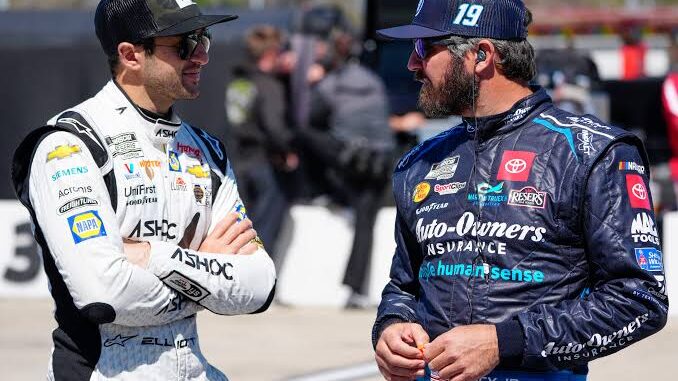
many, outrageous claim of being a “better all-around driver” than F1 star Max Verstappen. Larson pointed to his diverse wins in various racing disciplines as evidence, but this has done little to sway the opinions of the broader racing community.
Larson’s versatility across NASCAR, Sprint Cars, Dirt Late Models, and Dirt Midgets highlights his adaptability in various racing formats. However, Verstappen’s achievements in the highly technical world of Formula 1 underscore his exceptional skill set in a different context altogether.
While Larson’s statement has sparked heated discussions among racing enthusiasts, it’s crucial to recognize that comparing drivers across distinct disciplines is inherently complex and subjective. NASCAR and F1 present vastly different challenges that demand unique skill sets and adaptations.
Max verstappen, f1 driver
Max Verstappen, F1 Driver
Differences in Racing Disciplines
NASCAR, the quintessential American racing series, is famed for its oval tracks, high speeds, and close-quarters battles. The cars are purpose-built stock cars with powerful engines designed to handle the unique challenges of oval racing. NASCAR races typically last several hours, testing drivers’ endurance and strategic acumen.
Formula 1, the pinnacle of global motorsport, showcases cutting-edge technology and precision engineering. The cars are open-wheel, single-seaters, marvels of aerodynamic efficiency and speed. F1 races take place on a variety of circuits worldwide, each demanding distinct driving skills and strategies.
How These Differences Impact Driver Skills and Training
The contrasting environments of NASCAR and F1 directly influence the skills required for success. NASCAR drivers must excel at controlling their cars in tight packs, mastering the art of drafting, and making split-second decisions in high-pressure situations. F1 drivers, on the other hand, need exceptional car control, precise racing lines, and the ability to adapt to diverse track layouts and rapidly changing conditions.
Leave a Reply